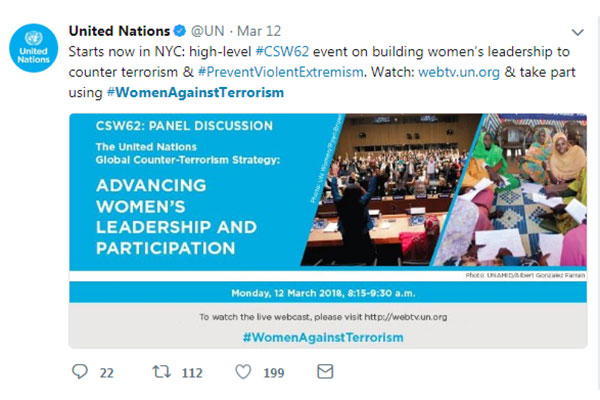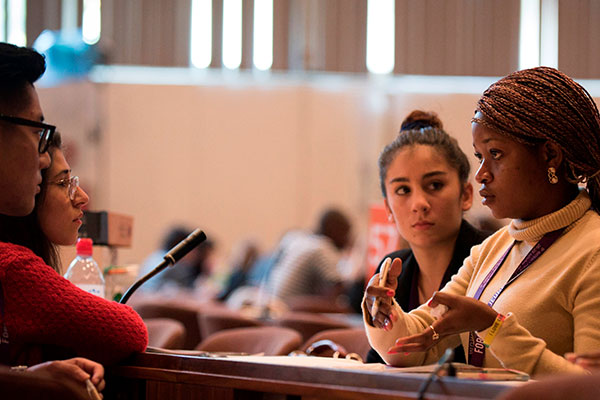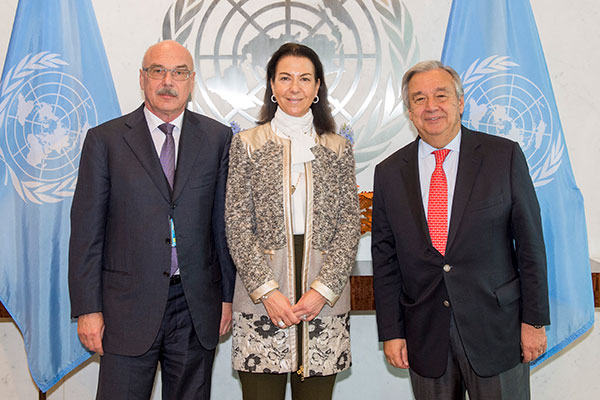Justice and the Prevention of Radicalization in Prisons
United Nations Office on Drugs and Crime (UNODC) has provided legal assistance to help draft national counter-terrorism legislation. UNODC has provided training to Iraqi judges and police officers so that they can be deployed to territories liberated from ISIL to investigate, prosecute and adjudicate terrorism offences. UNODC has an online platform which is an interactive tool specifically designed to provide training to and strengthen cooperation between actors of the criminal justice chain in the fight against terrorism CT Learning Platform. UNODC has also been implementing projects around the world including in Nigeria on Strengthening Criminal Justice responses to terrorism. UNODC has also produced a handbook on “Children Recruited and Exploited by Terrorist and Violent Extremist Groups: the Roel of the Justice System,” among many other publications.
UNODC, Counter-Terrorism Committee Executive Directorate (CTED) and the International Association of Prosecutors (IAP) jointly implement a new initiative which focuses on strengthening international cooperation by national prosecutors involved in counter-terrorism, notably by enhancing their capacity to obtain evidence in a timely manner. CTED also plans to utilize its “Tech against terrorism” initiative to engage with private-sector partners also in this area.”
UNODC, United Nations Office of Counter-Terrorism (UNOCT/UNCCT) and CTED have jointly developed a project on Managing Violent Extremist Offenders and Preventing Radicalization to Violence in Prisons. This project involved the publication of a comprehensive handbook for prison staff on managing the risk of radicalization in prisons and will soon start providing technical assistance to pilot countries. Specific objectives of the project include fostering cooperation among relevant national authorities, strengthening prison safety and security and advising on prison-based disengagement programmes.

UNOCT/UNCCT has a project on the Rehabilitation of Juveniles in Prisons in Pakistan which aims to provide vocational training to juveniles apprehended on violent violence in order to provide them with opportunities to develop skills to be able to acquire a livelihood and to resist radicalization in prison settings.
Since 2012 United Nations Interregional Crime and Justice Research Institute (UNICRI) has been implementing a major international P\CVE initiative which aims to support Member States, at their request, to design and establish effective disengagement, rehabilitation and reintegration (R&R) programmes for violent extremist offenders (VEOs) and to address the broad range of issues relating to radicalization inside and outside of prison settings. UNICRI recently organised a major conference on Bridging the Gaps between Prison and Community based Rehabilitation and Reintegration Programs for Violent Extremist Offenders.













